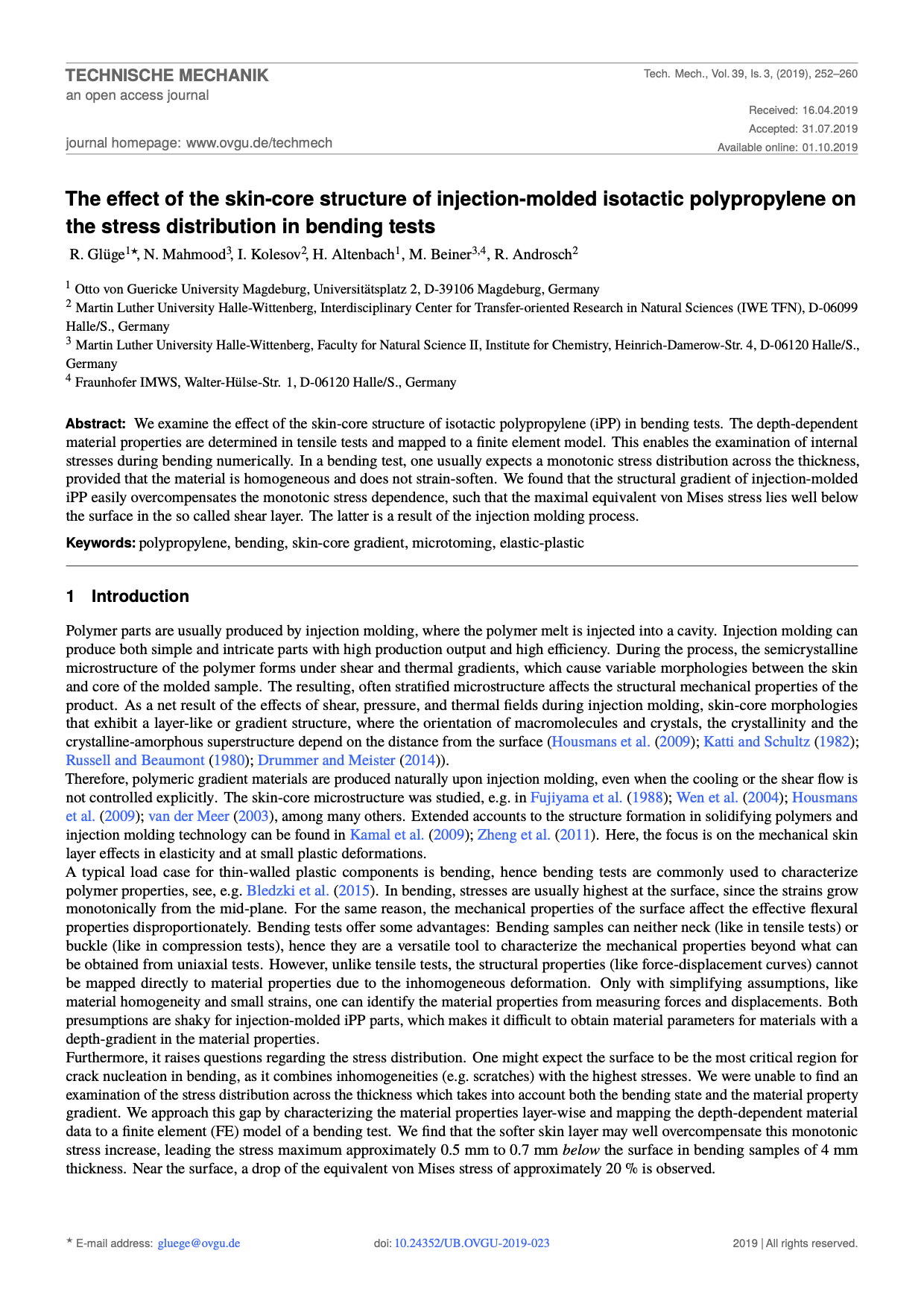The effect of the skin-core structure of injection-molded isotactic polypropylene on the stress distribution in bending tests
DOI:
https://doi.org/10.24352/UB.OVGU-2019-023Keywords:
polypropylene, bending, skin-core gradient, microtoming, elastic-plasticAbstract
We examine the effect of the skin-core structure of isotactic polypropylene (iPP) in bending tests. The depth-dependent material properties are determined in tensile tests and mapped to a finite element model. This enables the examination of internal stresses during bending numerically. In a bending test, one usually expects a monotonic stress distribution across the thickness, provided that the material is homogeneous and does not strain-soften. We found that the structural gradient of injection-molded iPP easily overcompensates the monotonic stress dependence, such that the maximal equivalent von Mises stress lies well below the surface in the so called shear layer. The latter is a result of the injection molding process.





